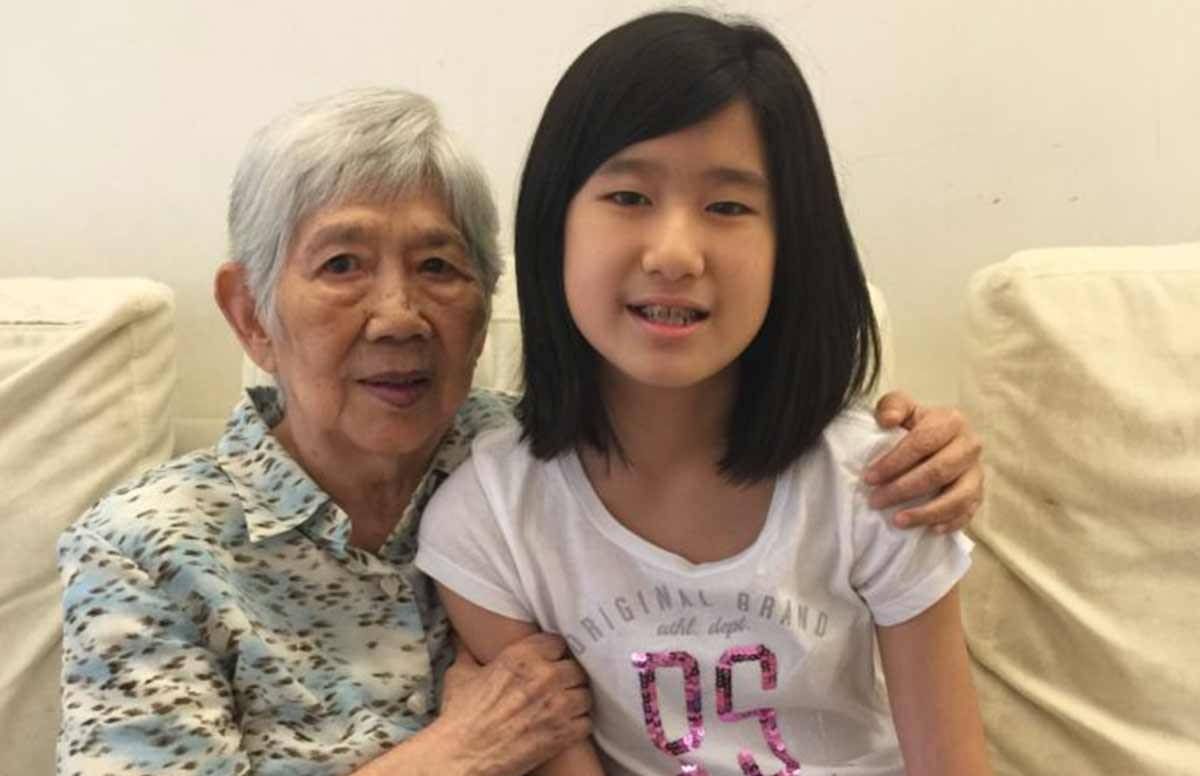12-Year-Old Develops Alzheimer's App
A budding software developer wanted to connect with her grandma in Hong Kong
(This article appeared previously on Tech50plus.com.)

In recent years I’ve come across a number of instances in which students have developed devices and apps to help older adults and the disabled. But I was genuinely impressed by the creation of 12-year-old Emma Yang, one of the recipients of the “Ten Under Twenty” innovation awards announced at this year’s CE Week conference in New York. Her creation, called Timeless, is an app that serves to help Alzheimer’s patients, their caregivers and their families.
Yang was inspired to create the app by her frustration in trying to connect with her own grandmother who lives in Hong Kong.
“When I was 8 years old, my grandma thought I was 13. And then one day, she forgot my birthday and my dad’s birthday. My grandma suffers from Alzheimer’s disease. She lives in Hong Kong and we live in New York. The distance makes it hard to stay engaged with her, especially as the illness progresses,” says Yang.
“For my grandma, recognizing people and remembering who they are is becoming increasingly difficult. She cannot remember if she has already spoken to someone and she’ll call people repetitively and say the same things. She cannot remember phone numbers and addresses and will struggle when trying to call her friends,” Yang says. “My idea is simple: an app that helps Alzheimer’s patients recognize their loved ones, remember events and stay connected and engaged with the people around them. My idea will allow them to sustain their independence and happiness, even if they may not necessarily be able to be cured of their condition.”
Confusion and Memory Loss
Yang says the Timeless app is the first of its kind. It directly addresses problems of memory loss and confusion. For example, it’s not unusual for an Alzheimer’s patient to make multiple phone calls to the same person in a short period of time. If Timeless detects that, the app will stop the call and ask, “Are you sure you want to make this call?”
Other problems include the inability to remember the names of family and friends, or even the name of the patient. Timeless includes tools such as facial recognition that help to deal with this, even a button to remind the patient of his or her own name.
“I utilized an artificial-intelligence-based facial recognition platform in my app,” Yang says. “When given a photo of a person, the app compares it with a pre-enrolled one and identifies who the person is. In the app, the user can recognize who is in front of them. This solves a common problem among Alzheimer’s patients — forgetting who their family and friends are or not being able to recognize them.”
The app also provides family and friends with a means of updating their activities to keep the patient involved.
Watch Yang demo it here. And then read on for a Q&A with the young developer.
A Tech Solution
Yang notes that while we may be a long way from a cure for this insidious disease, there are things that can be done to improve the quality of life of the patient and the family.
“The concept behind my idea is that we can allow technology to do what it’s good at, such as facial recognition, and use it to solve problems that we cannot solve ourselves,” Yang says. “The potential for technology to be able to help my grandmother, and others suffering from Alzheimer’s along the way, is what inspired me to create Timeless, because despite the difficulties of the illness, Alzheimer’s patients, too, should be able to cherish the timeless moments in life.”
Q&A: Developing the Alzheimer's App
How much experience did you have in programming and coding before you started?
Yang: I started with basic programming, but up to that point I’d never made a full-blown app, especially for iOS, before. I’d only done really basic app development, so this is really my first time doing an app from scratch.
When you started doing this, who did you talk to about what you were trying to do and what kind of support did you get?
Yang: My dad’s a software engineer, so he helped me with the technical areas of the project. I was also supported by a doctor who specializes in Alzheimer’s disease patients, so I gave her a demo of my app and she gave me feedback along the way that really helped me. And also for the facial recognition part of the app, where you can take a picture of a person, I had been using a platform developed by a startup in Miami called Kairos. I found them and I used the platform to develop that part of the app. They were really supportive and helped me through the process of implementing it into my app and making sure it worked.
How much research did you do to see if there was anything else on the marketplace that was comparable to this?
I did do a lot of research on what Alzheimer’s patients have difficulty with, things like having difficulty recognizing people and staying engaged. I tried to implement those features into the app as much as possible.
Where is the app at this stage, in terms of development and deployment?
I have a fully-functional prototype right now, but I’m still in the process of fully developing it. I plan to finish developing it and roll it out by the end of the year. I plan to be able to test it in the hands of real Alzheimer’s patients after I fully develop it.
Do you have any investors who are backing you, or are you doing this all on your own?
I did receive a scholarship last year, it’s called the Michael Perelstein Discover Your Passion Scholarship fund. This is my passion in computer science, and continuing to develop this app.

